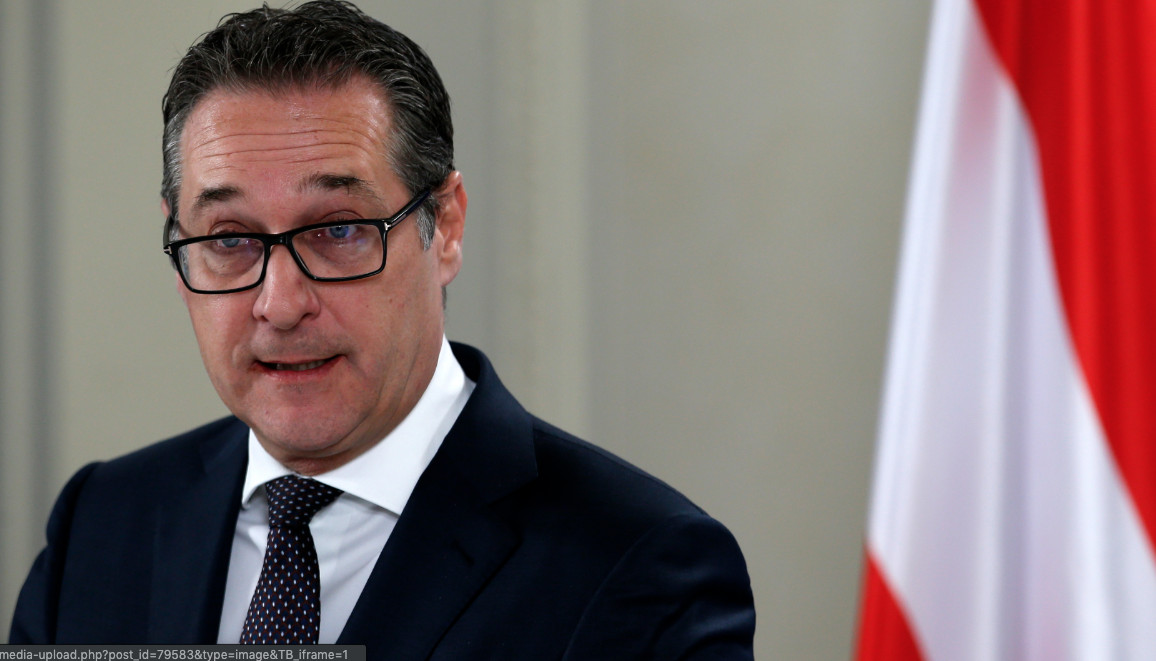Sign up for The Media Today, CJR’s daily newsletter.
On Friday, May 17, two German newspapers, Süddeutsche Zeitung and Der Spiegel, published a secretly recorded video. In it, Austria’s vice chancellor, Heinz-Christian Strache, speaks of his wish to re-design the country’s media environment so that it resembles Hungary, a country where the free press is all but destroyed. “We want to build a media landscape like [Viktor] Orbán did,” Strache says, referring to Hungary’s prime minister.
The quote was part of a six-hour conversation in Ibiza, Spain, involving Strache, the chairman of the right-wing populist Freedom Party of Austria (FPÖ); Johann Gudenus, another FPÖ politician; and an unidentified woman purporting to be the niece of a Russian oligarch. In the video, both the FPÖ leaders appear to promise several government contracts to the woman.
Strache, whose FPÖ is a junior member of the ruling conservative government, stepped down the next day, amid the scandal. On Saturday, Sebastian Kurz, the chancellor of Austria, announced that he would end the coalition government and hold snap elections this fall.
ICYMI: The White House wages war on transparency
The revelations have come to light during a surge of press-freedom threats, which have multiplied since Strache’s far-right party came to power in December 2017 as part of the coalition led by Kurz, who is a member of ÖVP, the Austrian People’s party.
Austria’s public broadcaster, ORF, has been a special target. In April, Harald Vilimsky, an FPÖ member of the European Parliament, verbally attacked veteran ORF news reporter Armin Wolf after Wolf asked him about an anti-Muslim FPÖ poster. During the interview, Vilimsky said that the questions would “not remain without consequences,” and that if he was in charge, he would fire Wolf on the spot.
In February, after an interview with Austrian President Alexander Van der Bellen, Hans-Jörg Jenewein, a spokesman for FPÖ, called another veteran broadcast journalist at ORF, Wolfgang Wagner, a Gesinnungsjournalist, a journalist reporting in favor of a particular political party. Jenewein also said that Wagner’s questions were reminiscent of an East German news program, called for “reform of the head and limbs” of the broadcaster, and demanded Wagner’s firing.
“I’ve been in this business for 30 years, so I’m used to a lot of critics and pressure,” Wagner tells CJR. “But this is not normal.”
In response, Wagner filed a defamation lawsuit against the parliamentary delegation of the FPÖ. Wagner tells CJR that a judge recently ruled in his favor. FPÖ has filed an appeal.
Last year, an internal memo from Herbert Kickl, the interior minister and a member of FPÖ, directed police press departments to minimize communication with several publications it saw as critical. Kickl also changed the press policy at the ministry, which resulted in reporters often being prohibited to ask questions at government press conferences. This policy persists even as the coalition collapses. “The government is breaking down, and they’re still doing this, and even stronger than before. It’s really horrible,” Fritz Hausjell, deputy head of the Institute of Journalism and Communication Science at the University of Vienna, says.
For Hausjell, this policy is significant because it threatens the Austrian press’s ability to report. “When you cut out the media, you lose the chance for people to get the information they need,” he says.
Reporters Without Borders (RSF) downgraded the country’s ranking five points in 2019, a move they made before the current scandal. Pauline Adès-Mével, the head of Europe and Balkan desk at RSF, says that anti-media rhetoric has become commonplace, and that independent journalists doing investigations are accused of being leftists or trying to destroy the government. “We are legitimacy fearing new attacks on media,” Adès-Mével says.
The situation for the Austrian media is in no way as grave as it is in Hungary, where the independent press has been essentially destroyed, or in Poland, where public broadcasting has become a mouthpiece for the ruling ultra-conservative Law and Justice Party. Austria still has a vibrant press ecosystem. But these incidents are nevertheless worrisome, especially when taken as a whole. Folker Hanusch, a professor of journalism at the University of Vienna, calls it “creeping change.”
“People were worried that the country was going in the direction of Hungary, and the footage shows [Strache’s] wish to muzzle the press to gain influence and make it a tool for his purposes,” Hanusch says. With Strache out and his party no longer part of a ruling coalition, his plans may be foiled. But Hanusch says that Austria has not dodged a bullet yet.
“I wouldn’t say I’m fully relieved,” Hanusch says. “We have to keep watching what will happen.”
ICYMI: The story of Ernest Hemingway’s $187,000 magazine expenses claim
Correction: A previous version identified Süddeutsche Zeitung as the publisher of the video. It was jointly published with Der Spiegel.
Has America ever needed a media defender more than now? Help us by joining CJR today.



